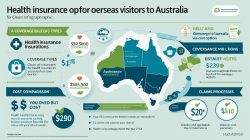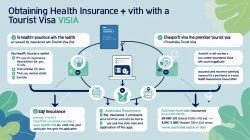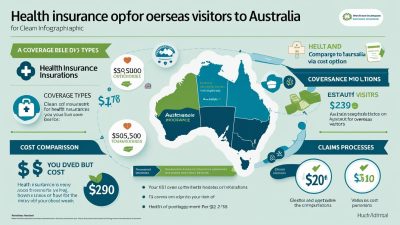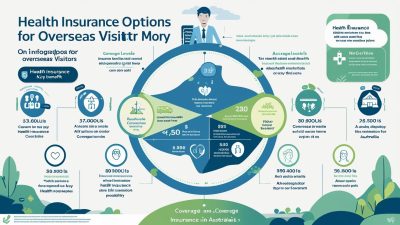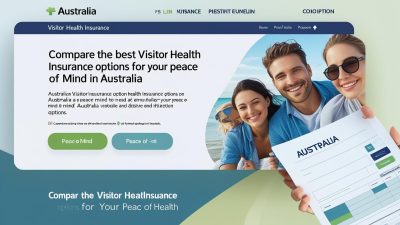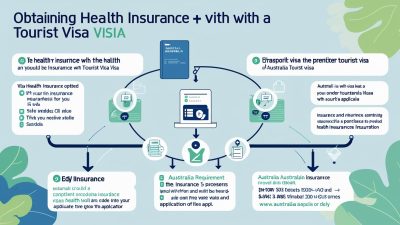How to Get Health Insurance in Australia: A Complete Guide for 2025
Bloggerbanyumas.com – Australia is known for its world-class healthcare system, offering a wide range of medical services to residents and visitors alike. However, navigating the complexities of health insurance can be overwhelming, especially for newcomers. Whether you’re an Australian resident, international student, or visitor, obtaining health insurance in Australia is essential for ensuring access to quality healthcare services when needed.
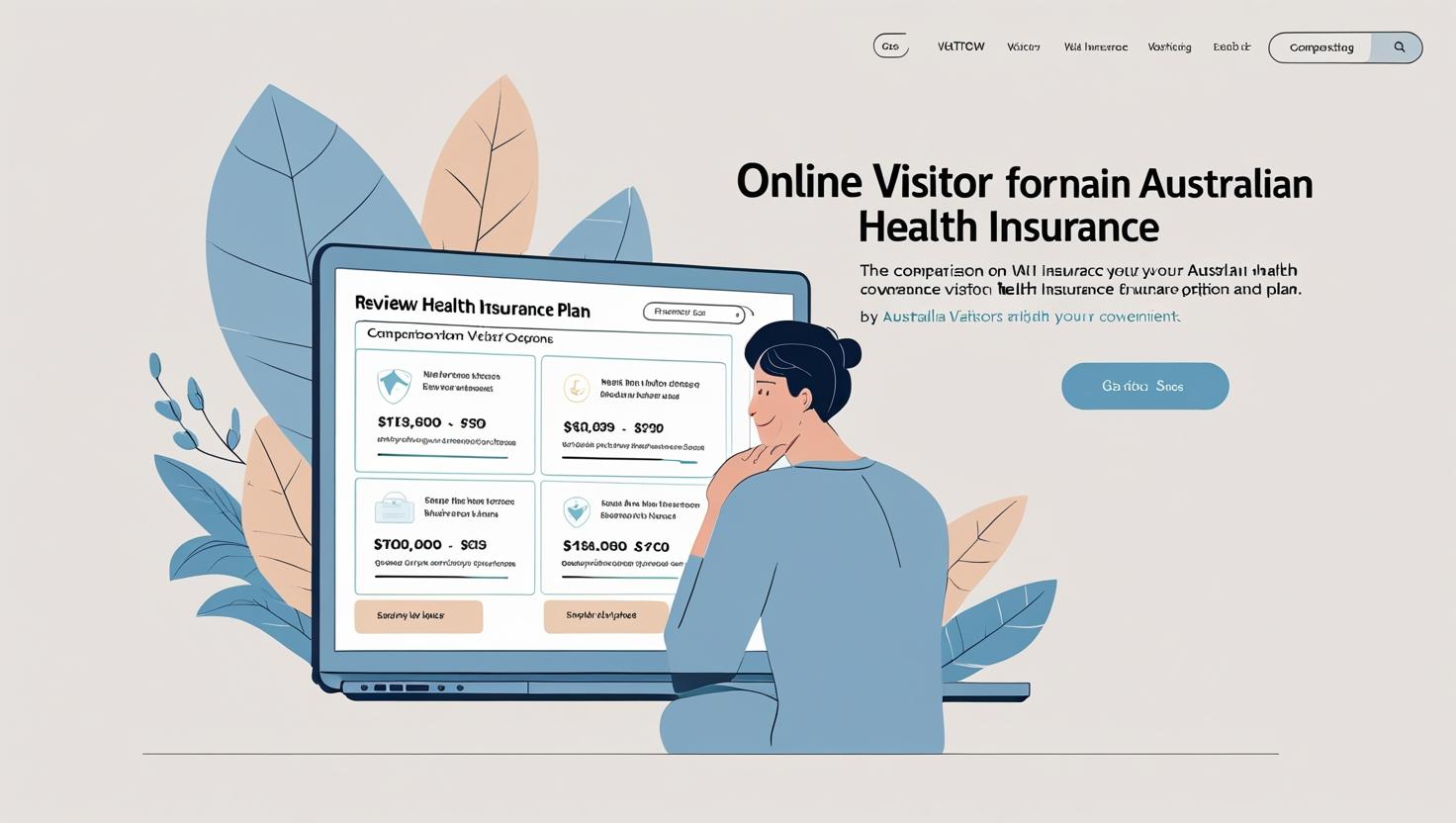
Health insurance in Australia is available through a combination of public and private options. While Australia’s public healthcare system, Medicare, provides basic coverage for citizens and permanent residents, private health insurance allows individuals to access additional services, avoid long wait times, and enjoy more flexibility in choosing healthcare providers. In 2025, the process of securing health insurance in Australia has become more streamlined, but understanding the ins and outs of the system is key to selecting the best plan for your needs.
This comprehensive guide will walk you through the process of getting health insurance in Australia, from understanding your options to choosing the right policy. We’ll explore the differences between public and private health insurance, the steps involved in applying for coverage, and the factors you need to consider when making your decision. By the end of this article, you’ll be well-equipped to navigate the Australian healthcare system and choose the right insurance plan to meet your needs.
Understanding the Healthcare System in Australia
Australia’s healthcare system is a blend of public and private options, providing residents with access to comprehensive medical services. The two primary systems to consider when looking for health insurance in Australia are Medicare (the public system) and private health insurance.
Medicare: The Public Health Insurance System
Medicare is Australia’s public healthcare system, which is funded by the government through taxation. It provides residents and certain visa holders with free or subsidized access to essential medical services. Medicare covers:
- Public hospital services: Most hospital services, including emergency care and inpatient services, are provided at no charge to Medicare beneficiaries.
- Doctor visits: Medicare covers general practitioner (GP) visits, including consultations and certain medical services.
- Diagnostic tests: Medicare covers essential diagnostic tests, such as blood tests, X-rays, and imaging services.
- Prescription medications: Medicare provides a subsidized pharmaceutical benefit scheme (PBS), covering the cost of many prescription medications.
While Medicare offers a solid safety net for basic healthcare services, it does not cover all medical expenses. For example, it generally does not cover dental care, private hospital stays, or certain elective procedures. This is where private health insurance comes in.
Private Health Insurance: Supplementing Medicare
Private health insurance in Australia allows individuals to access a broader range of services beyond what is covered by Medicare. There are two main types of private health insurance:
- Hospital cover: This provides coverage for treatment in private hospitals, allowing individuals to choose their healthcare provider and avoid long wait times for elective surgeries.
- Extras cover: This covers services not included in Medicare, such as dental, optical, physiotherapy, chiropractic care, and more.
Private health insurance is typically purchased through private insurers, and policies can be tailored to meet your specific needs, whether you’re seeking comprehensive coverage or more basic plans.
In 2025, private health insurance is more flexible than ever, with policies designed to meet the needs of individuals, families, international students, and even visitors to Australia. It’s worth noting that if you’re an Australian resident, you may be eligible for government rebates or other incentives for taking out private health insurance, depending on your income level.
How to Choose Health Insurance in Australia
When considering how to get health insurance in Australia, there are several factors to keep in mind. Whether you’re an Australian citizen, permanent resident, or visitor, understanding the various types of coverage available and assessing your needs will help you make an informed decision. Here’s how you can approach the decision-making process:
1. Determine Your Eligibility for Medicare
If you’re an Australian citizen or permanent resident, you are automatically eligible for Medicare, and enrolling in the system is simple. All you need to do is register with the Department of Human Services (DHS) to receive your Medicare card. The card gives you access to a range of healthcare services, including subsidized doctor visits and free hospital stays.
If you’re a temporary resident, such as a student or visitor, you may not be eligible for Medicare. However, some temporary visa holders may be able to apply for Medicare under reciprocal healthcare agreements, such as visitors from countries like the UK, New Zealand, and Sweden. In this case, it’s essential to check if your country has an agreement with Australia and how it impacts your healthcare access.
2. Assess Your Healthcare Needs
Before selecting a health insurance policy, assess your personal healthcare needs. Consider the following factors:
- Age and Health: If you’re young and healthy, you may need a basic policy that covers emergency medical care and essential services. However, if you have pre-existing health conditions or are nearing retirement, a more comprehensive plan may be necessary.
- Frequency of Healthcare Visits: If you frequently visit healthcare providers or need specialized care (e.g., dental, optical), look for policies that include extras cover.
- Hospital Care: If you prefer treatment in a private hospital or wish to avoid long waiting times for elective procedures, consider hospital cover.
- Pre-existing Conditions: If you have a pre-existing condition, make sure the insurance policy covers it. Some insurers may impose waiting periods or exclusions for certain conditions.
- Family Coverage: If you’re purchasing health insurance for your family, look for policies that offer family coverage and cater to the specific needs of children, such as pediatric care.
3. Compare Private Health Insurance Plans
Once you’ve assessed your healthcare needs, it’s time to compare private health insurance plans. There are several things to consider when comparing policies:
Premium Costs
Premiums vary widely depending on the insurer, the type of coverage, and your health profile. While it may be tempting to go for the cheapest option, it’s essential to consider the level of coverage and the value it provides for your specific needs. Compare the premiums for different policies and ensure that the benefits align with your healthcare requirements.
Coverage Limits and Exclusions
Each health insurance policy has coverage limits, which define the maximum amount the insurer will pay for medical services. Additionally, some policies may exclude certain treatments or conditions, so it’s crucial to review the fine print carefully. Ensure the policy covers your most likely healthcare needs, such as dental, optical, and physiotherapy, in addition to hospital care.
Waiting Periods
Health insurance policies in Australia often include waiting periods for certain services. For example, if you’re seeking cover for a pre-existing condition, the insurer may impose a waiting period before you can claim benefits. Ensure you’re aware of any waiting periods before purchasing a policy to avoid unexpected delays in receiving coverage.
Government Rebates and Incentives
If you’re a resident of Australia, you may be eligible for government rebates or other incentives for taking out private health insurance. These rebates are based on your income and may reduce the amount you need to pay for premiums. For instance, the government offers a means-tested private health insurance rebate that reduces premiums for eligible individuals and families.
Provider Network
Some private health insurance policies limit your choice of healthcare providers or require you to use a particular network of hospitals or specialists. If you have preferred providers or want the flexibility to choose your doctor or hospital, look for a policy with a broad network of covered providers.
4. Consider Additional Options for Visitors and Temporary Residents
If you’re a visitor to Australia, you may not be eligible for Medicare, but you can still get health insurance through various visitor health plans. There are different types of policies specifically tailored to visitors, such as Overseas Visitor Health Cover (OVHC) for international travelers, students, and working holidaymakers. OVHC policies cover essential medical treatment, emergency care, and sometimes additional services like dental or optical care.
- Student Health Insurance: If you’re an international student in Australia, you may be required to take out Overseas Student Health Cover (OSHC) as part of your visa requirements. This insurance will cover most essential medical services, such as doctor visits and hospital stays. OSHC plans are available from a range of providers, so be sure to compare policies to ensure that it offers the coverage you need.
- Visitor Health Insurance: For travelers to Australia on a tourist or working holiday visa, visitor health insurance policies are available. These policies are designed to cover medical emergencies, including hospital stays, medical treatments, and evacuation. Look for plans that provide comprehensive coverage for unexpected medical issues during your stay.
5. Apply for Health Insurance
Once you’ve compared health insurance plans and decided which one suits your needs, it’s time to apply. Here are the basic steps involved in purchasing health insurance in Australia:
- Research Providers: Research different health insurance providers and their policies. Many insurers have websites with easy-to-use tools that allow you to get quotes and compare coverage.
- Gather Required Information: You may need to provide personal details, including your age, health history, and any pre-existing conditions. Some insurers may also ask for proof of residency status or visa information.
- Choose Your Policy: Select the policy that best fits your needs based on premium cost, coverage, and exclusions.
- Complete the Application: Once you’ve chosen your plan, complete the application process online or by contacting the insurance provider directly. Many insurers offer online sign-ups that are quick and simple.
- Make Payment: After completing your application, you’ll need to pay the first premium. Some insurers offer payment plans, allowing you to pay your premiums monthly or annually.
6. Review and Adjust Your Coverage Regularly
It’s important to review your health insurance coverage periodically to ensure it continues to meet your needs. Life events such as marriage, the birth of a child, or a change in employment can affect your healthcare requirements. By reviewing your policy annually or after any major life changes, you can adjust your coverage and ensure that you’re always adequately protected.
Conclusion
Getting health insurance in Australia is essential for accessing quality medical care, whether you’re a resident, student, visitor, or temporary resident. The country’s healthcare system offers both public and private options, with Medicare covering basic services and private health insurance providing additional coverage for a broader range of needs.
By carefully evaluating your healthcare requirements, comparing different policies, and considering factors such as premiums, coverage limits, and waiting periods, you can select the right health insurance plan for your needs. Whether you’re applying for Medicare, purchasing private health insurance, or seeking visitor or student health coverage, understanding the process will ensure that you have the right coverage in place for your stay in Australia.
Secure your health insurance in Australia today and enjoy peace of mind knowing that you’re covered for unexpected medical events during your time in this beautiful and vibrant country.

